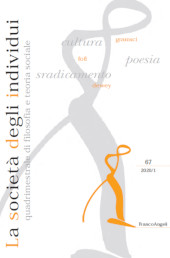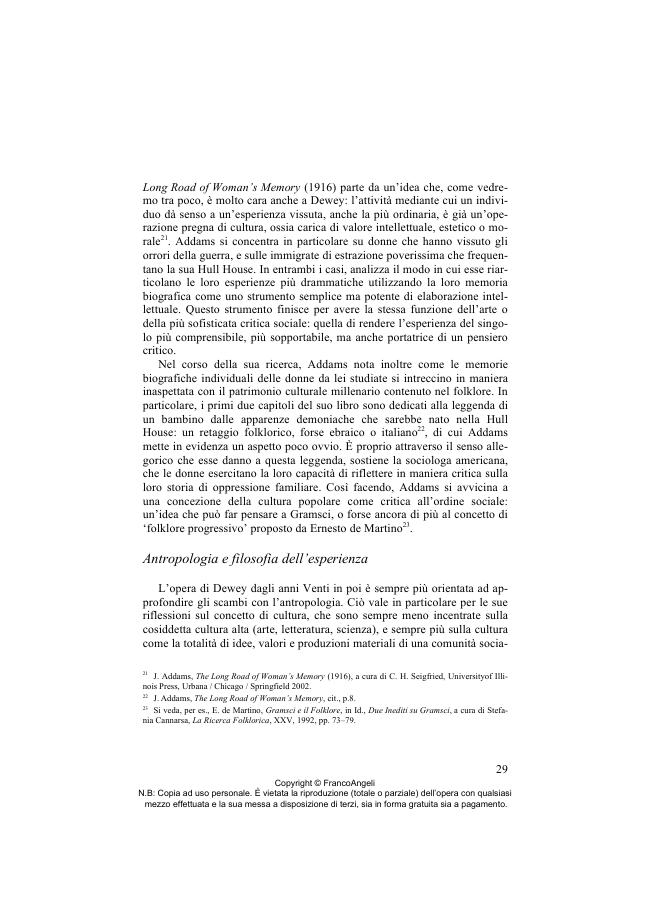Il primato dell'esperienza : la critica della cultura nel pragmatismo
22-35 p.
This article reconstructs the main phases of the pragmatist critique of culture and highlights its underlying ideas. It emphasizes, in particular, the importance given to the concept of experience, both as the ultimate testing ground for criticism and as the mainstay of all cultural phenomena. This idea begins to emerge in Charles S. Peirce's and William James's reflections on science and religion. However, it is only brought to full maturity by John Dewey in an ambitioned synthesis between philosophy and the social sciences. In turn, Dewey's work displays many points of contact with the work of other scholars working in Chicago in the first half of the twentieth century. In conclusion, the article touches on an alternative understanding of cultural criticism that comes out of Richard Rorty's 'neo-pragmatism'. [Publisher's text].
Fait partie de
Società degli individui : 67, 1, 2020-
Articles du même numéro (disponibles individuellement)
-
Informations
Code DOI : 10.3280/LAS2020-067003
ISSN: 1972-5752
KEYWORDS
- Pragmatism, critique of culture, experience, religion, Peirce, W. James, Dewey



